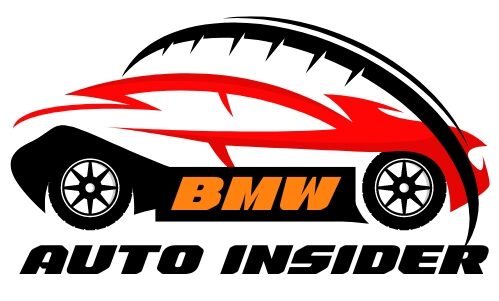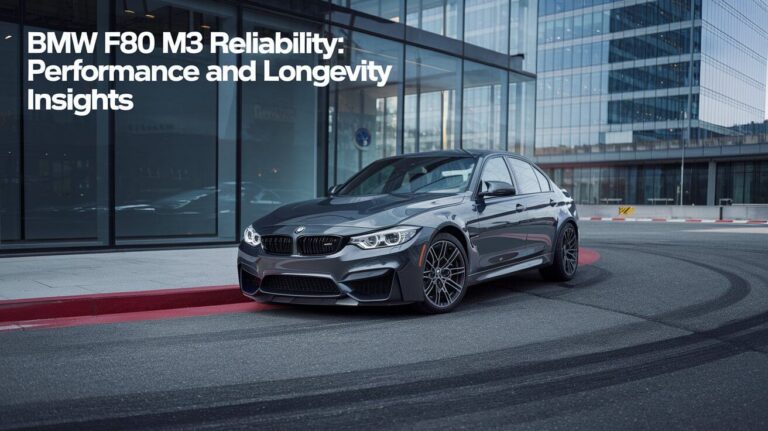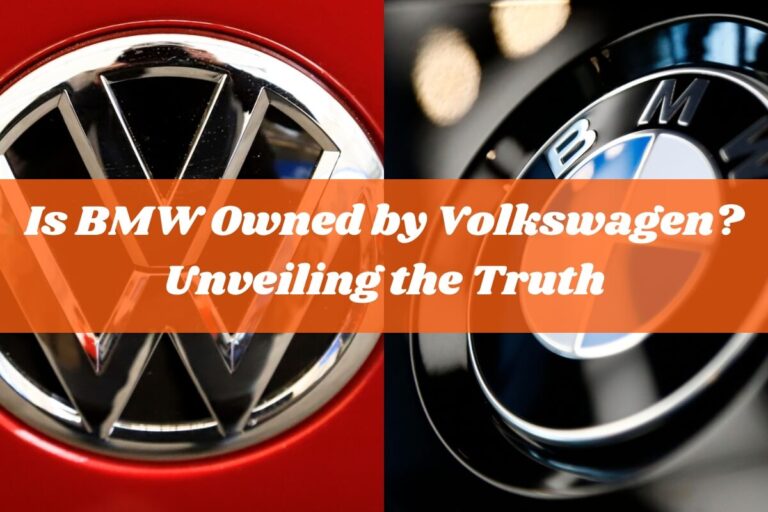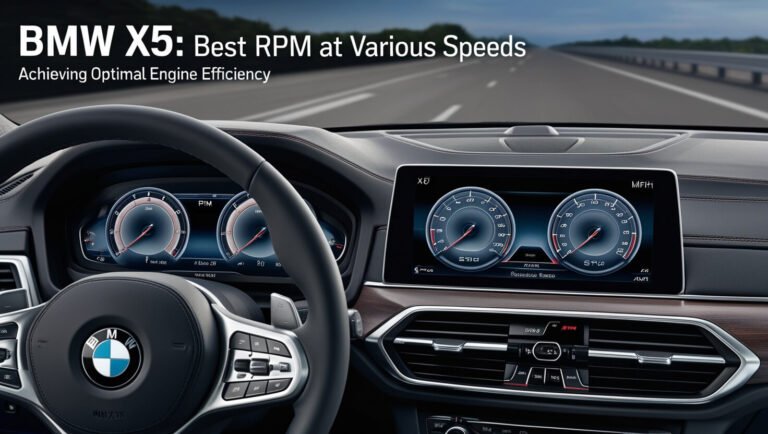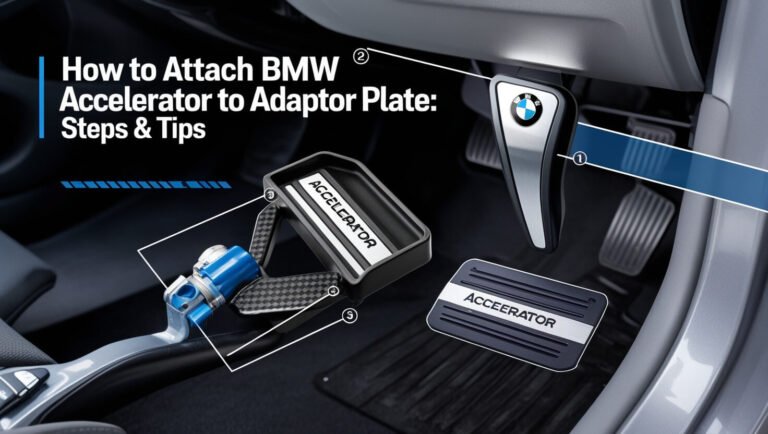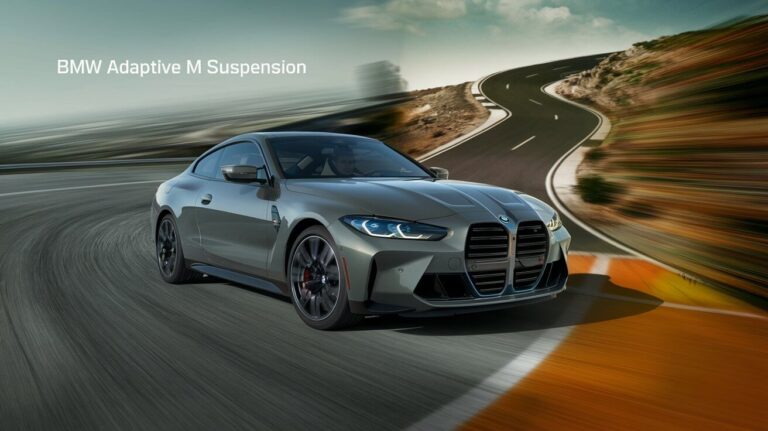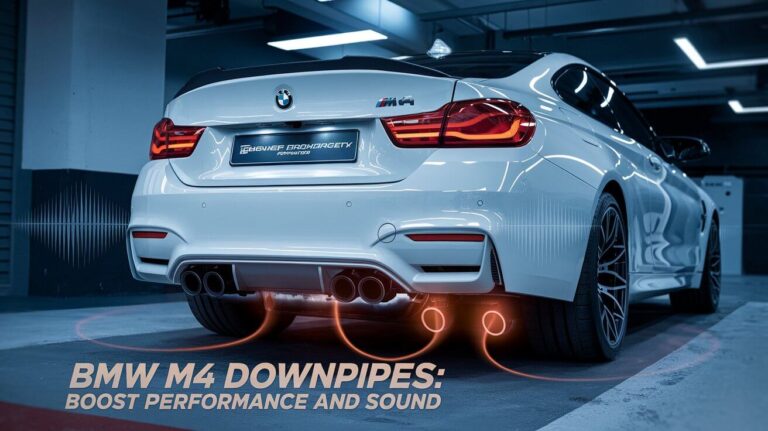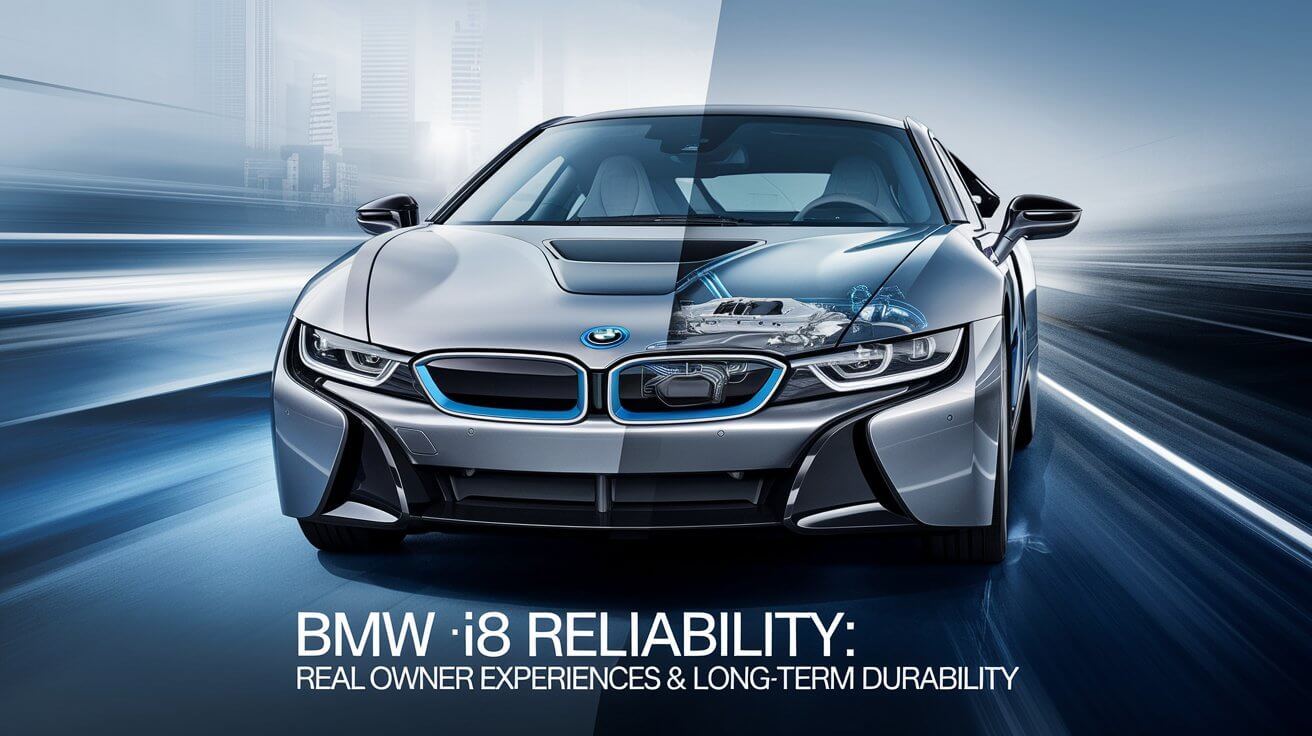
The BMW i8 made waves as a futuristic hybrid sports car. Eight years and many sales later, we now know more about how it holds up. Owners say it’s mostly reliable if cared for right. The battery and hybrid engine work well even after lots of miles. But it needs special care, and fixes can cost a lot. Real drivers’ stories tell us what to expect from this unique car.
Common BMW i8 Problems and Issues
Battery System Performance and Longevity
The i8’s 7.1 kWh battery pack holds up well over time. BMW backs this confidence with an 8-year/100,000-mile warranty on the battery system. Most owners report minimal battery degradation, even in high-mileage examples reaching 70,000+ miles.
Key battery-related facts:
- Original range: 23 miles pure electric
- Typical degradation: 10-15% after 5 years
- Battery replacement cost: $5,000-$8,000
- Warranty coverage: 8 years/100,000 miles
Engine and Hybrid Powertrain Concerns
The 1.5-liter three-cylinder engine proves surprisingly robust. This same engine serves in various MINI models, bringing proven reliability. The electric motor and transmission system show few issues, though some owners report occasional integration hiccups between power sources.
Common powertrain issues:
- Fuel tank opening problems
- Occasional overheating in early models
- Central controller faults
- Integration glitches between electric and gas power
Door Mechanism Failures
The striking butterfly doors create occasional headaches. Some owners face issues with:
- Door struts wearing prematurely
- Sensor malfunctions
- Weather stripping degradation
- Limited access in tight parking spots
BMW i8 Maintenance Costs
Regular Service Expenses
Maintenance costs run higher than standard BMWs but lower than exotic supercars. Expect to pay:
- Oil changes: $200-300
- Annual service: $400-800
- Brake service: $800-1,200
- Tire replacement: $1,200-1,600 per set
Specialized Parts and Labor
The i8’s unique design means most repairs require dealer expertise. Independent shops rarely work on these cars due to:
- Limited technical knowledge
- Specialized diagnostic equipment needs
- Complex carbon fiber construction
- Hybrid system complexity
BMW i8 Parts Availability
Sourcing Replacement Components
Parts availability varies significantly by region. U.S. owners often face:
- Extended wait times for components
- Parts typically shipped from Germany
- Limited aftermarket options
- High costs for specialized items
Even simple parts like 12V batteries often require ordering from Germany, causing repair delays of weeks or months in some cases.
Long-Term Ownership Experience
High-Mileage i8 Performance
Several i8s have crossed 70,000 miles with minimal issues. Long-term owners report:
- Consistent performance
- Reliable daily driving capability
- Average fuel economy of 35-40 mpg
- Good battery health
Real Owner Satisfaction Rates
Owner satisfaction remains high, particularly regarding:
- Low running costs compared to traditional supercars
- Reliable daily usability
- Strong build quality
- Reasonable maintenance when properly scheduled
Model Year Changes and Improvements
Early Production Issues (2014-2015)
First-year models faced several challenges:
- Fuel system problems
- Software glitches
- Integration issues between power sources
- Limited dealer expertise
Mid-Cycle Updates (2016-2018)
BMW addressed early concerns through:
- Updated control software
- Improved battery management
- Enhanced cooling system
- Better dealer training
BMW i8 Running Costs
Fuel Economy Reality
Real-world efficiency impresses owners:
- 35+ mpg without plug-in charging
- 40-50 mpg with regular charging
- 23-mile electric range
- 42-liter fuel tank requires frequent fills
Insurance Expenses
Insurance costs vary but typically run:
- $2,000-4,000 annually
- Higher than standard BMWs
- Lower than exotic cars
- Age and location dependent
BMW i8 Resale Value and Depreciation
Current market trends show:
- 50-60% depreciation after 5 years
- Better value retention than many exotics
- Strong interest in well-maintained examples
- Potential future collectible status
Early i8s now sell between $40,000-60,000, representing significant savings from original $140,000+ prices. However, maintenance costs require consideration at these price points.
Final Thoughts
The BMW i8’s reliability record shows strengths and weaknesses. Strong powertrain durability and battery longevity balance against specialized maintenance needs and parts availability challenges. Proper maintenance and realistic expectations about repair times and costs prove crucial for successful ownership.
Owners willing to accept these trade-offs gain a unique, capable, and relatively reliable hybrid sports car. The i8’s blend of efficiency and performance continues attracting buyers, while improving dealer expertise and established maintenance patterns make ownership increasingly predictable.
